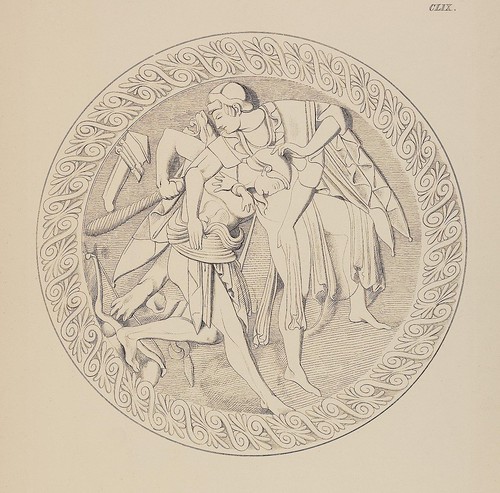
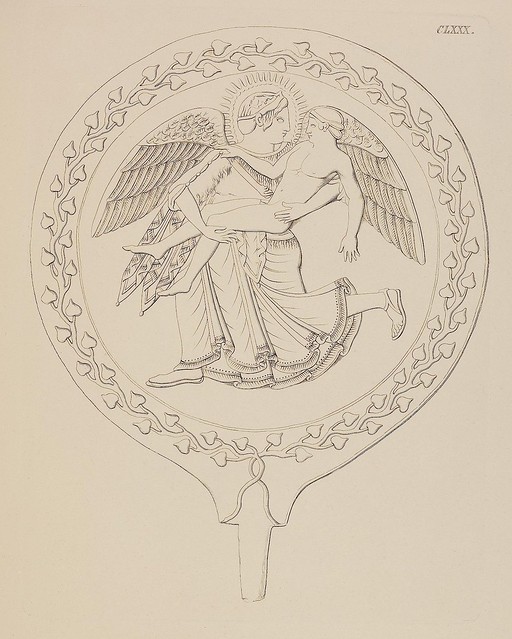
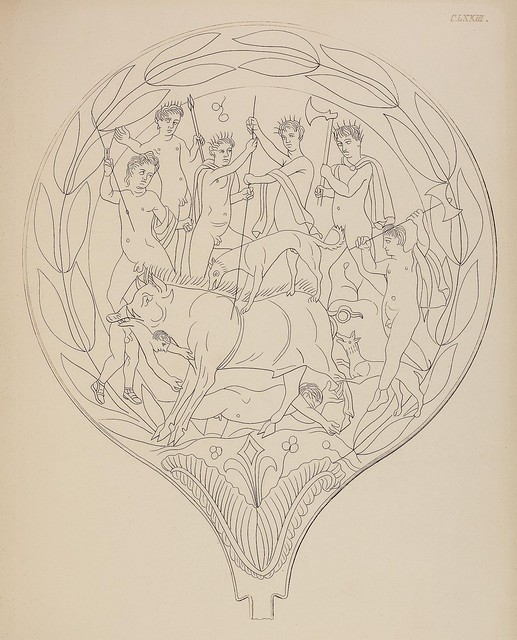
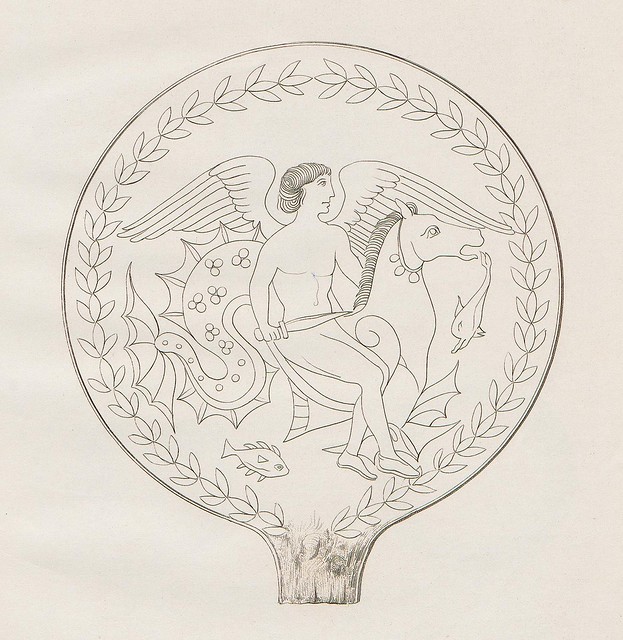
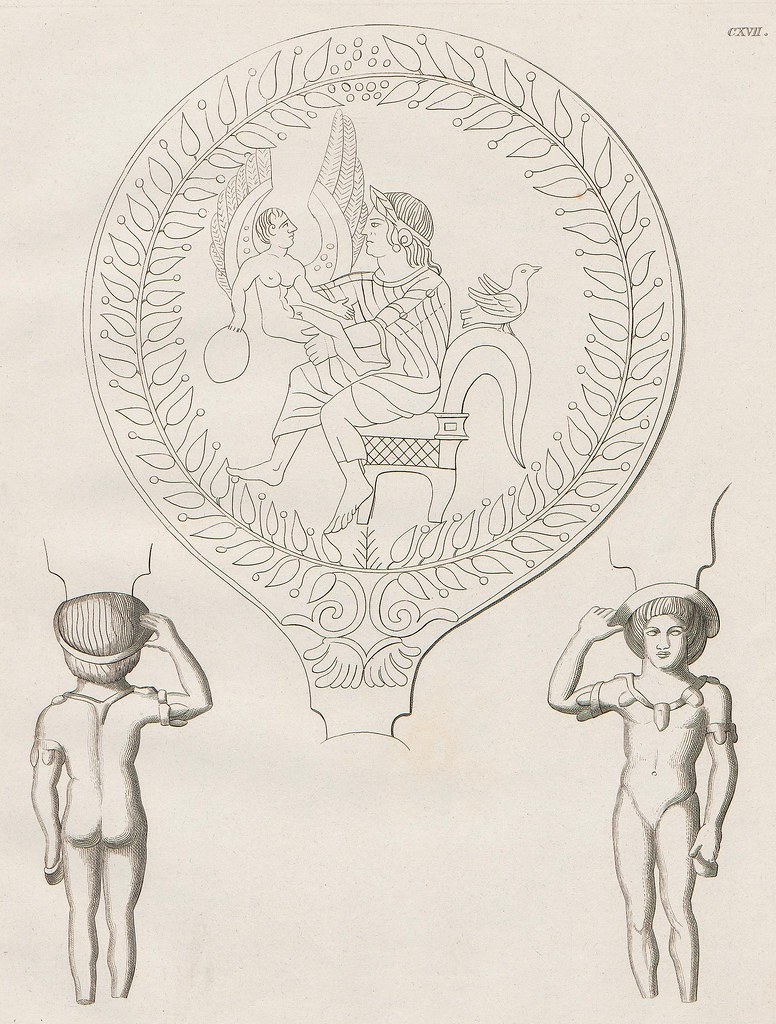
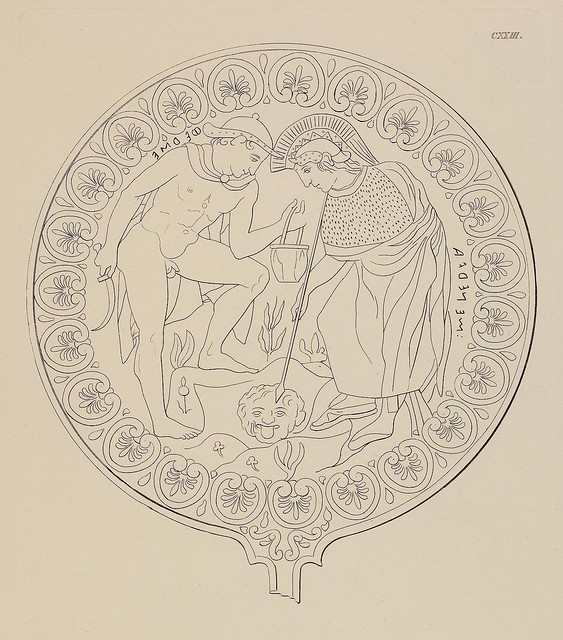
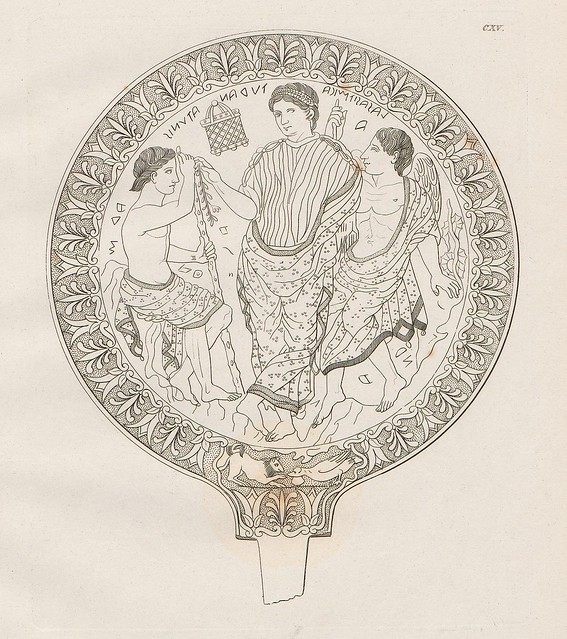
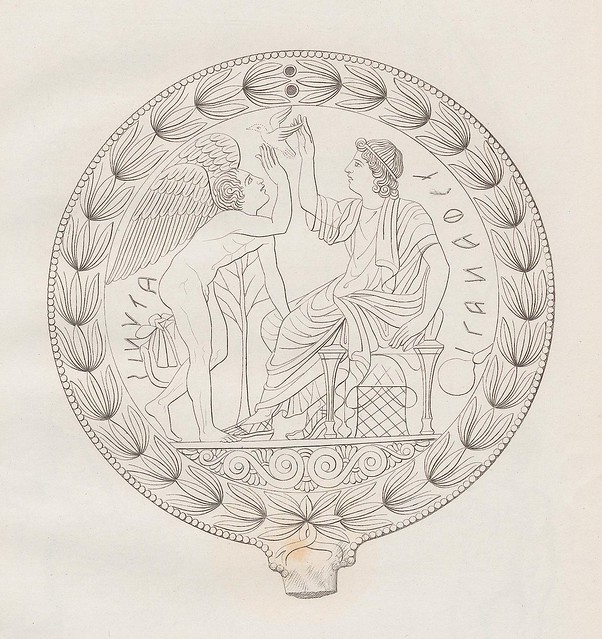
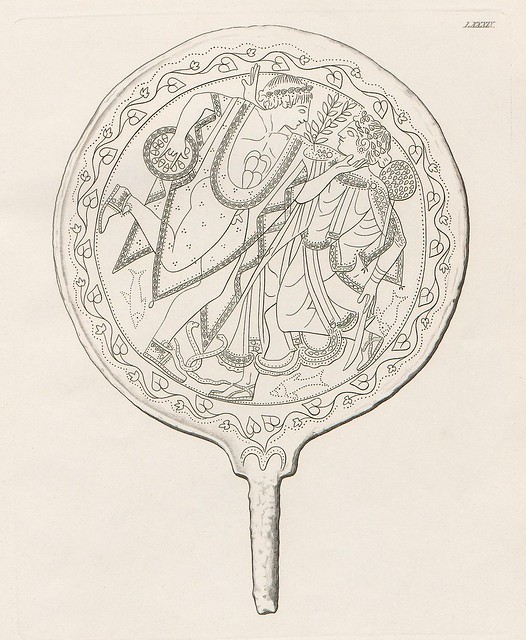
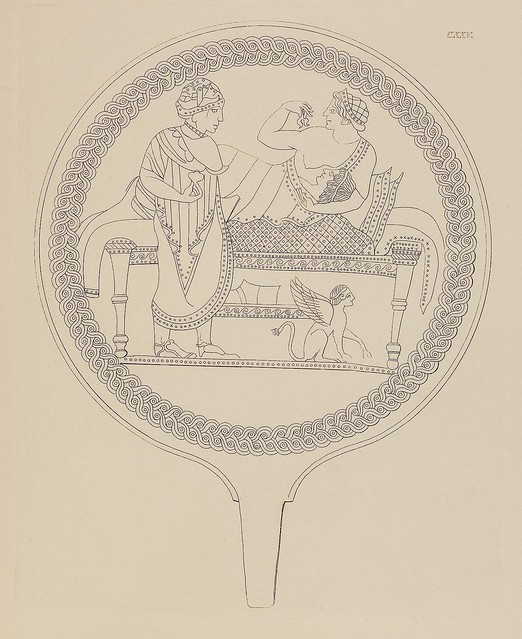
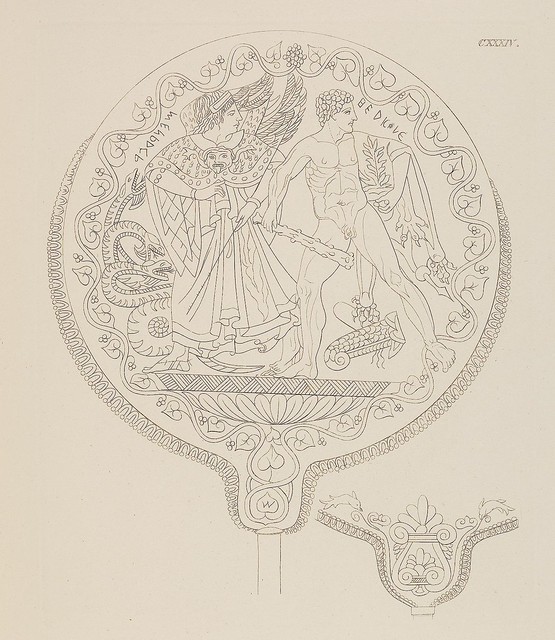
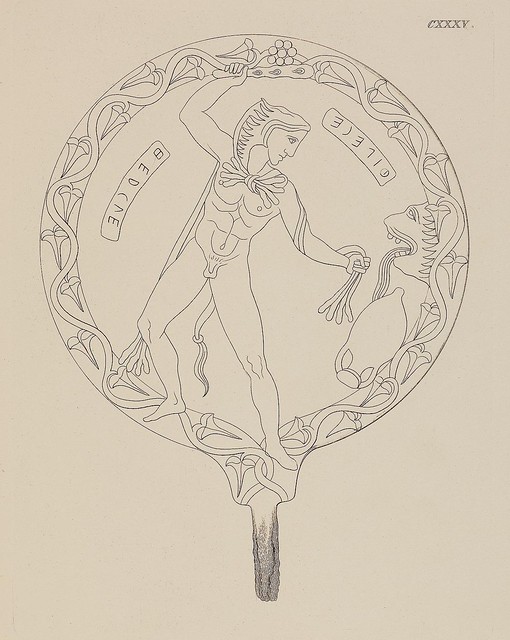
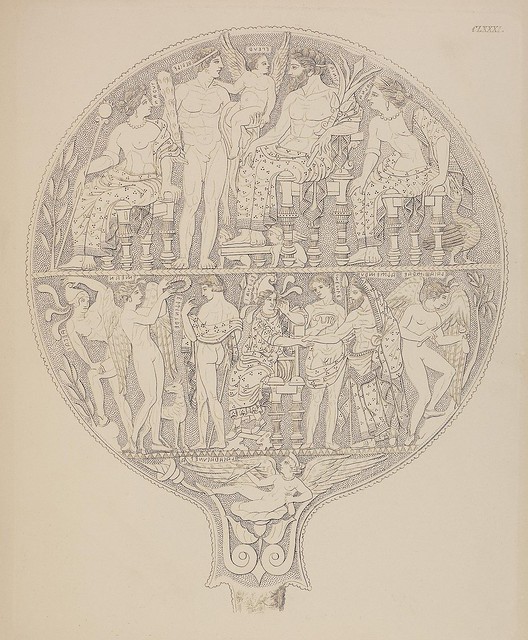
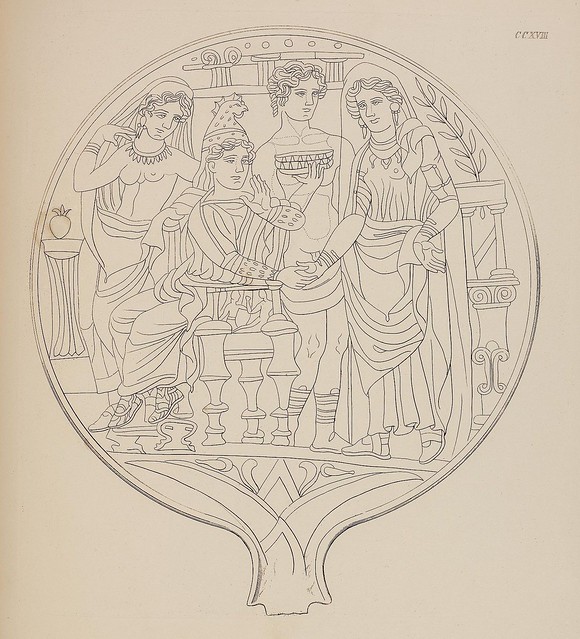
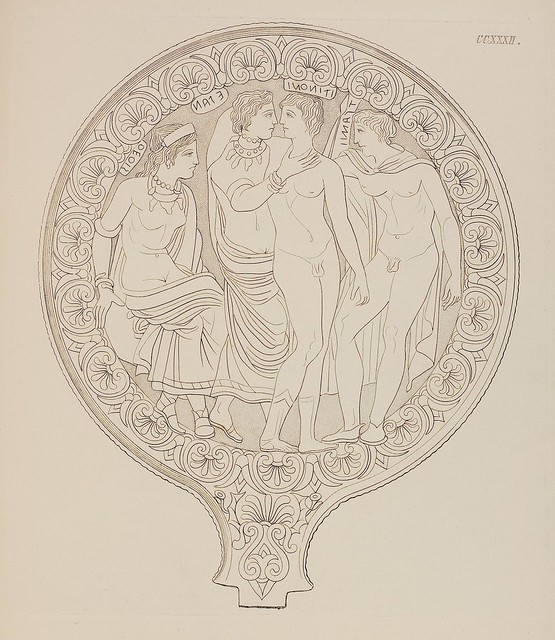
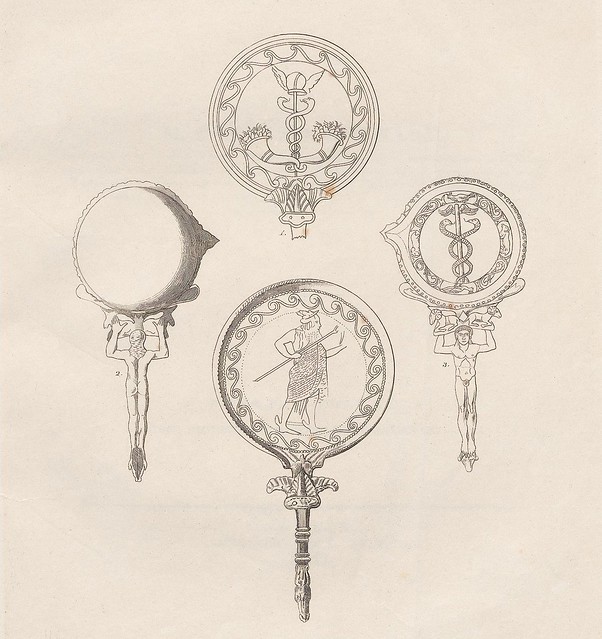
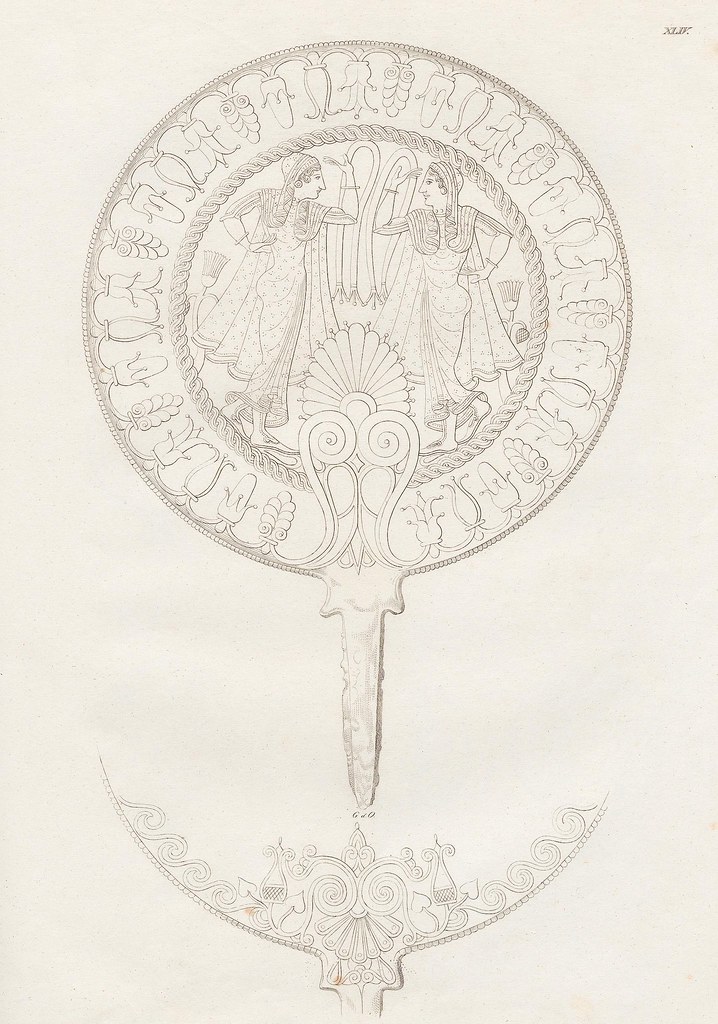
{click through to enlarged versions;
all the images here are cropped from the full page and have been spot-cleaned}
all the images here are cropped from the full page and have been spot-cleaned}
Looking for all the world like a an antiquities-themed Sydney Gay & Lesbian Mardi Gras* commemorative plate catalogue, this sampling of BC metal designs was, in fact, published in the 1840s (mostly) as part of a 5-volume series on Etruscan hand-mirrors.
'Etruskische Spiegel' is available among the archaeology collection at Ruprecht-Karls-Universität Heidelberg. Four volumes are accessible and the vast majority of images seen above were obtained from the first two volumes. Click through on a volume 'Bände', then on anything below 'Inhalt' and then on 'Vorschau' for thumbnail views of all the pages.
"Bronze hand mirrors were a characteristic product of the Etruscans. Made throughout the period between the 6th and 1st centuries BC, they provide much information about Etruscan bronze technology and the development of Etruscan art.
They were very often decorated on the backs with scenes from daily life, religion and mythology. Some show stories from Greek mythology, some purely Etruscan, some a mixture of both. The wealth of information they convey makes them a resource comparable to Greek painted vases. Sometimes the names of the figures are inscribed making the mirrors important for knowledge of the Etruscan alphabet and writing. The design varies in quality, but the best are exquisite examples of design and craftsmanship.
The reflecting disc was highly polished to give a sharp, detailed image. Most were slightly concave, so that held at arm’s length much of the upper body would be in view. The alloy was copper with about 7-11% tin and less than 1% lead, resulting in a yellowish metal and, consequently, a yellowish image." [Source]
Wikimedia has some pictures of the actual mirrors.
I'm reminded a little of Flaxman's La Divina Commedia.
Delightful post and images! Thanks!! They're quite breathtaking!
ReplyDeleteH
Wow.
ReplyDelete